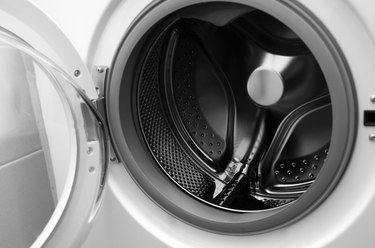
Why is it that the things you care least about emerge from the dryer in perfect condition, while it's always your favorite shirt that ends up shrinking to half its original size? Laundry disasters strike everyone, but you don't have to make the same mistakes twice. Learn some simple tips so that you'll have no stretched seams, faded dye or funky odors in your future.
Cris Cantón/Moment/GettyImages
1. Pouring Detergent Over Your Clothes
Pouring detergent directly on top of your clothes probably won't damage them, but it's not ideal. The detergent may collect in one garment instead of dissolving and being evenly distributed in the washer the way it should. Always follow your model's directions for adding detergent.
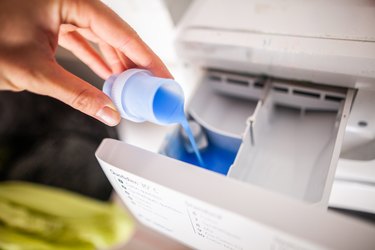
Video of the Day
2. Setting Stains in the Dryer
When a stained item comes out of the washer still stained, all is not lost. You may be able to minimize or remove the stain with another round of spot treatment. However, once that item goes into the dryer, the stain will be permanently locked in by the heat. Check that marks and spots are completely removed before moving garments into the dryer.

3. Washing Hook and Loop Fasteners
Commonly known as Velcro, hook and loop fasteners are often used on kids' items and in adjustable cuffs on casual jackets. If you toss these items in with the rest of your laundry, other fabrics will snag on them. Always close any hook and loop fasteners and place these items in a mesh bag before putting them in the washing machine. Better yet, wash items with hook and loop fasteners on their own.
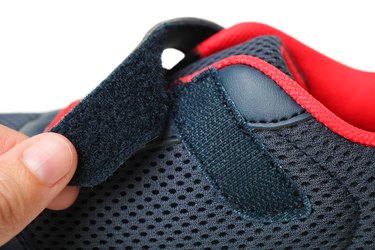
4. Using the Wrong Detergent
Fifty years ago, shopping for laundry detergent wasn't hard; every brand did the same thing. Today, things are a little more complicated. Using regular detergent in a high-efficiency washer may actually damage the machine, and using high-efficiency detergent in a regular washer may not generate enough suds to get your clothes clean. Scan the label carefully before buying a new bottle.
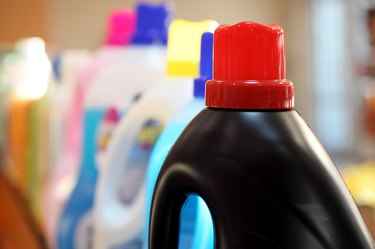
5. Leaving Zippers Open
Like Velcro fasteners, open zippers will grab and hold anything they touch. Your other clothes may become twisted and stretched out by the time the cycle is done if they tumble while snagged on a zipper. Check that all zippers are closed before starting the machine.
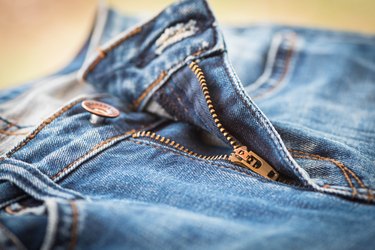
6. Leaving Buttons Buttoned
If you have any clothes that have both zippers and buttons, things start getting complicated. While zippers should be closed for washing, all button openings should be left open. The washer's movement may pull on the fabric, straining the button threads and possibly even making buttons fall off.

7. Washing New Items Without Testing
Nothing will change your opinion of a new piece of clothing like the first washing. You loved those dark jeans … until the dye bled and they stained an entire load. Try testing colorful new items by soaking them for 15 to 30 minutes in a soapy solution. If the water is tinted, it means the dye bleeds. Wash that item by hand or alone in the washing machine to prevent dye transfer.

8. Overusing Fabric Softener
Maybe you think clothes just don't seem clean unless they smell like your favorite brand of fabric softener. Unfortunately, you may be damaging your clothes and your dryer without realizing it. Fabric softeners coat everything with a thin film, which builds up over time on your clothes and the inside of your machine. If you can't live without fabric softener, use it very sparingly.
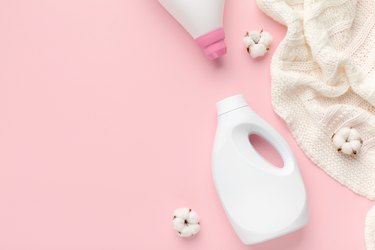
9. Neglecting Your Lint Trap
Failing to empty the lint trap is one laundry mistake that's potentially dangerous to you and your family. Lint buildup is a serious fire hazard, so no one can afford to be lax about this. If necessary, put a brightly colored sign on your dryer that reminds everyone to make sure the lint trap is empty before pressing start.
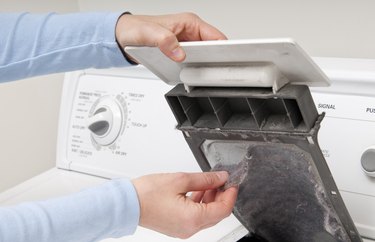
10. Letting Your Washer Get Dirty
When was the last time you cleaned the thing that cleans your clothes? If the answer is "uh, never?"… well, you're probably in good company. Mildew and minerals build up in your washer and make it smell, so if you're going to get truly clean clothes, it's a good idea to wash the machine itself a few times a year. This can be as simple as running the washer through a cycle with just hot water and vinegar in the drum.
